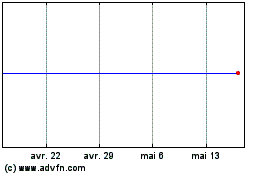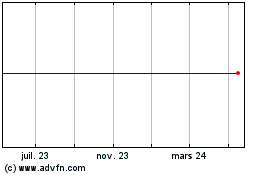Venezuela Electoral Council Suspends Presidential Recall Bid
21 Octobre 2016 - 7:50AM
Dow Jones News
CARACAS, Venezuela—Electoral officials suspended a recall
referendum campaign that opposition parties were mounting against
President Nicolá s Maduro, making it increasingly unlikely the
president's foes will be able to remove the embattled leader from
power.
The National Electoral Council, staffed with close allies of Mr.
Maduro, said in a statement Thursday night it was truncating an
opposition signature drive after four provincial courts called it
fraudulent and issued rulings putting a halt to the effort. Four
ruling party governors, alleging fraud but presenting no public
evidence, had requested injunctions from the courts earlier
Thursday.
"There won't be a referendum, and with the support of the
constitution, we won't allow them to try to cheat our people
again," one of the governors, Francisco Rangel, said in a Twitter
posting.
The ruling represents a dark moment for an opposition movement
that started the year buoyant, with a supermajority in congress and
what its leaders thought was the political capital to end 17 years
of socialist rule that left a once prosperous country struggling to
feed its own people. But while Mr. Maduro's popularity has
continued to fall, he has handed over more power to the military
while the courts neutralized the congress and blocked opposition
plans to overhaul the economic model. Now, it increasingly appears
that Mr. Maduro will finish out his term in 2019, even as the
economy continues its collapse.
The developments came days after the electoral council announced
it was postponing elections in December for governors, saying they
would instead take place later in 2017. Polls have shown the
opposition would easily remove Mr. Maduro in a recall and take most
of Venezuela's governorships and mayors' seats, which are also up
for grabs next year.
"This only shows the regime's deep fear of losing power, just as
they already lost the popular support," an opposition party,
Popular Will, said after the ruling. The party, whose leader has
been jailed since 2014, has called on Venezuelans to take to the
street to demand the vote.
The opposition contends the electoral council has blocked every
effort to stage a referendum, which is permitted in the
constitution. The government's adversaries say the council delayed
the process, coming up with complex steps that weren't in electoral
regulations and had not been required before. The Supreme Court,
staffed by magistrates close to the government, upheld the
council's rulings.
Last month, the council ruled that a recall couldn't take place
this year, which extinguished the opposition's goal of ending
socialist rule. Had a recall been staged successfully this year,
Mr. Maduro would have been removed from power, triggering national
elections that polls show the opposition would have won.
Since last month's ruling, Mr. Maduro's opponents were instead
hoping for an election next year. Under that scenario, Mr. Maduro
could be removed, though his vice president would replace him and
finish out his term.
The opposition was gearing up for a national petition drive for
next Wednesday to gather signatures from 20% of all registered
voters to trigger the referendum for 2017.
Constitutional lawyer Jose Vicente Haro said local criminal
courts have no say over national electoral matters. "This decision
is unconstitutional," he said.
The rulings on Thursday leading to the electoral council's
decision were unexpected. They were made by criminal court judges,
and were issued just hours after the governors sought the
injunctions. Those governors alleged that a few thousand signatures
collected by the opposition earlier this year in an initial stage
of the referendum were fraudulent, even though the opposition had
collected almost 10 times the required number.
The country's powerful ruling party vice president, Diosdado
Cabello, went even further, saying that opposition leaders should
be jailed.
"We hope that those responsible [for fraud] will be found, will
be detained and will go to prison for what they have done," he
said.
The suspension caps the steady radicalization of Mr. Maduro's
government, which is dealing with an economic meltdown
characterized by hyperinflation and widespread food and medicine
shortages. Mr. Maduro and the Supreme Court have, for instance,
taken away all of the powers of the National Assembly, which has
been in the hands of the opposition since January. Last week, for
the first time since the 1860s, Mr. Maduro approved his own budget,
without congressional debate.
Write to Anatoly Kurmanaev at Anatoly.kurmanaev@wsj.com
(END) Dow Jones Newswires
October 21, 2016 01:35 ET (05:35 GMT)
Copyright (c) 2016 Dow Jones & Company, Inc.
Twitter (NYSE:TWTR)
Graphique Historique de l'Action
De Juin 2024 à Juil 2024

Twitter (NYSE:TWTR)
Graphique Historique de l'Action
De Juil 2023 à Juil 2024
